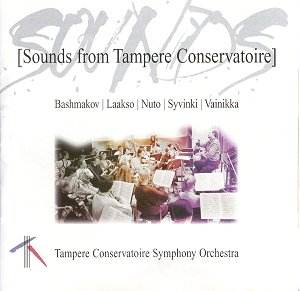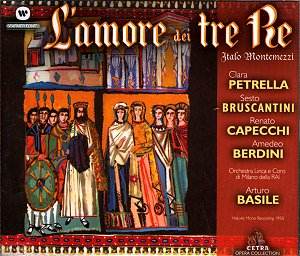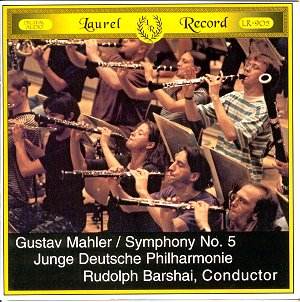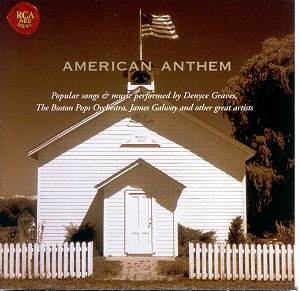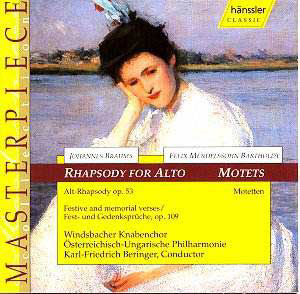 Composer: Johannes Brahms
Composer: Johannes Brahms
Works: Alto Rhapsody, Opus 53; Festive and Memorial Verses, Opus 109; Felix Mendelssohn: Three Motets: Jauchzet dem Herrn, Richte mich Gott (Psalm 43), Denn er hat seinen Engeln befohlen
Performers: Pamela Coburn (soprano), Lioba Brawn (mezzo soprano), Deon van der Welt (tenor), Windsbacker Knabenchor, Austro-Hungarian Philharmonic Orchestra, Friedemann Winklhofer (organ)
Recording: 20-14 July 1996, Kirche St Gumbertus
Label: Hänssler Classic CD94.008
The present disc showcases a compelling juxtaposition of Johannes Brahms and Felix Mendelssohn, two titans of the Romantic choral tradition, yet the recording is most notable for its exploration of less frequently performed works. Brahms’s Alto Rhapsody, a staple of the concert repertoire, reveals his profound understanding of the human voice, while the accompanying Festive and Memorial Verses offers a glimpse into his venture into unaccompanied choral writing, which is often overlooked. Mendelssohn’s three motets, though more familiar in choral circles, are rendered with sensitivity and finesse that merit closer attention.
Lioba Brawn shines in the Alto Rhapsody, her rich, warm tone capturing the work’s emotional depth. Beringer’s conducting, marked by a thoughtful pace, allows the music’s inherent drama to unfold naturally. The climactic moments are particularly striking, as Brawn navigates the soaring lines with a sense of both vulnerability and strength. The recording captures her voice with an indulgent closeness, amplifying the emotional resonance. However, this intimacy can also verge on excess, occasionally overwhelming the orchestral backdrop, which deserves greater prominence in the overall soundscape.
In the Festive and Memorial Verses, Brahms’s affinity for choral texture is palpable. Here, the ensemble’s performance is marked by clarity and precision, effectively conveying the work’s gravitas. The harmonic interplay among the voices is well articulated, particularly in the opening sections where Brahms employs rich counterpoint to evoke a sense of communal reflection. The recording’s atmosphere, while lively, could benefit from a more balanced spatial presentation to allow the blend of voices to emerge with greater clarity.
The three motets by Mendelssohn reveal a composer who, much like Brahms, had a deep appreciation for the choral tradition. The Windsbacker Knabenchor delivers these works with a polished accuracy that highlights their textural intricacies. The motet “Jauchzet dem Herrn” is performed with a buoyant energy that invigorates its jubilant themes, while the somber introspection of “Richte mich Gott” is rendered with a contemplative grace that lingers in the listener’s mind. The recording captures the choir’s sound with a pleasing balance, allowing for both the individual lines and the collective harmony to coexist beautifully.
Despite the commendable performances, the recording suffers from two significant drawbacks. The absence of texts and translations hinders engagement with the music, particularly for those unfamiliar with the works. Additionally, the overall playing time of under 38 minutes feels inadequate for a major release, which could deter all but the most dedicated collectors.
The combination of Brahms’s and Mendelssohn’s choral works, although engaging, is somewhat undermined by the technical and logistical shortcomings of this release. The performers exhibit a commendable understanding of the music, yet the lack of context provided by accompanying texts and the brevity of the disc detracts from the listening experience. While the artistry on display is noteworthy, the recording ultimately leaves one wishing for a more comprehensive presentation that fully honors the depth and complexity of the repertoire.
